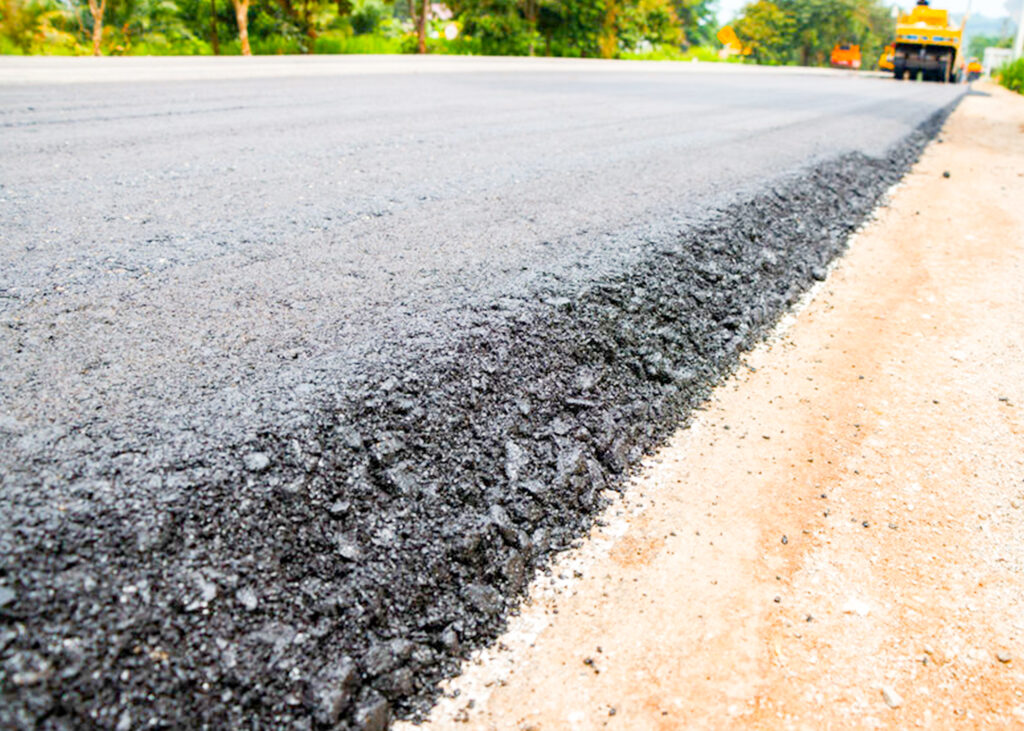Difference
Paver Block
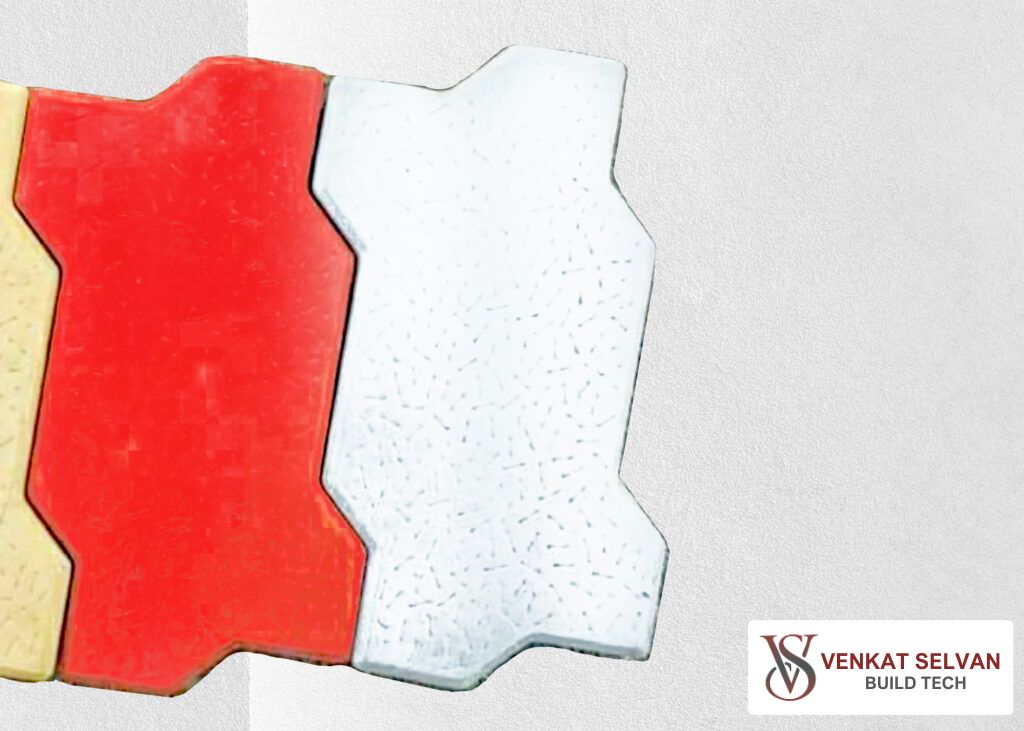
A diverse selection of surface finishes, colors, shapes, and sizes. With a broad range of options, laying patterns can enhance the architectural style of any home.
Tightly fitted, uniform units are installed over a sand bed and a compacted aggregate base. Ready for immediate use. Can be installed by the homeowner or an ICPI Certified Professional.
Stained or broken pavers can be easily replaced without visible patches. Dark-colored pavers help conceal stains. Factory-made pavers are highly durable and can last for decades.
Small, high-density units resist cracking and withstand freeze-thaw cycles and salt exposure. Pavers are more durable than ordinary or stamped concrete.
The smooth surface facilitates easy snow removal, while darker-colored pavers help melt snow more quickly. Snow-melt systems can be easily integrated to eliminate the need for snow and ice removal.
Provides a sophisticated, lasting, yet informal "Old World" charm.
Non-uniform units require precise hand-fitting during installation.
High-quality stone offers durability for decades. However, wide joints may encourage weed growth and ants, while the rough surface can make walking and driving challenging.
High-density stone resists cracking and salt damage.
The rough surface makes snow plowing challenging.
Cobble Stone
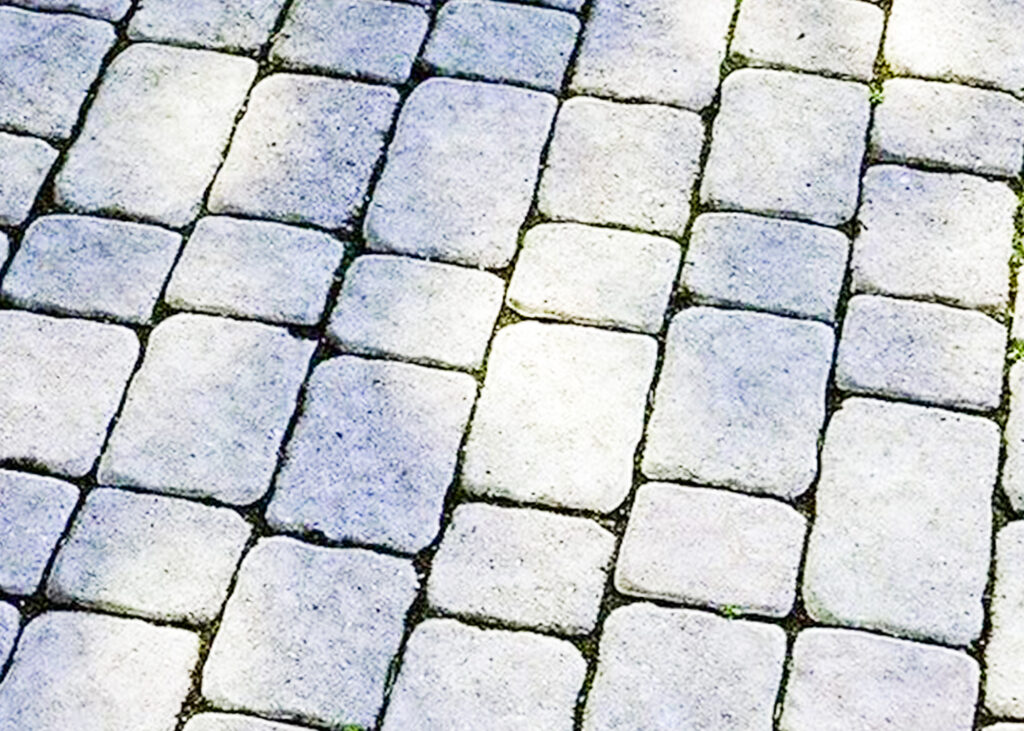
Clay Brick
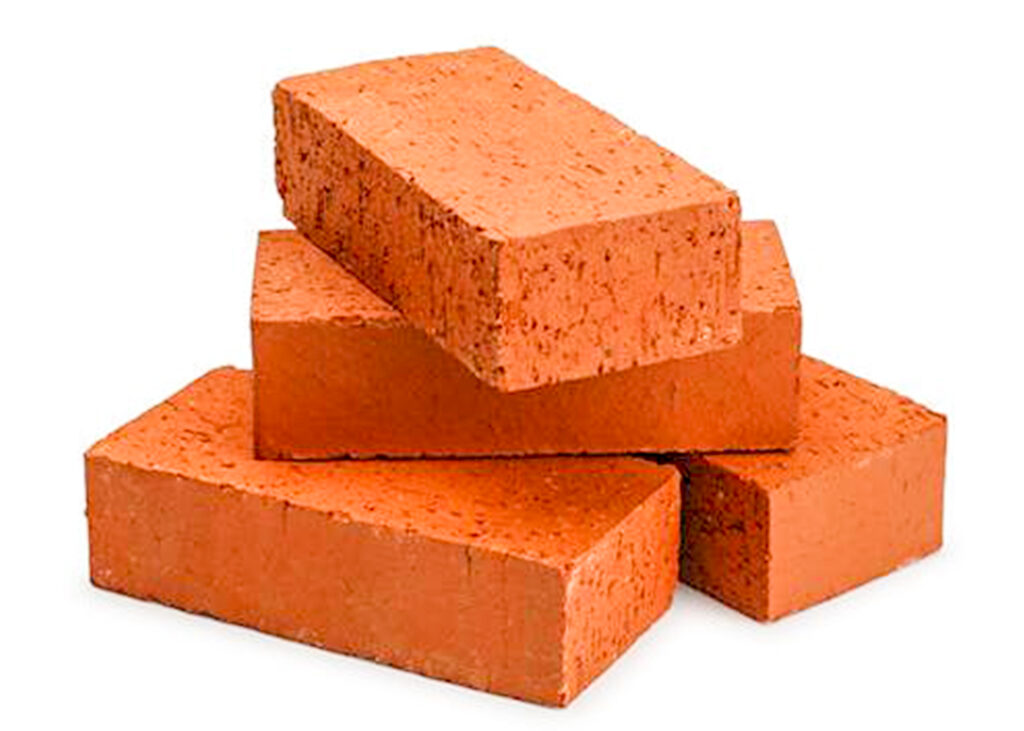
Traditionally available in shades of red and red-brown, with limited shapes and sizes.
A mortar-set base may be used, increasing costs. Natural variations in dimensions can slow installation and make it challenging to maintain straight pattern lines.
Natural surface variations may result in chipping or potential damage.
Some clay pavers may deteriorate due to salt exposure.
The smooth surface enables easy snow removal, while darker-colored pavers accelerate snow melting.
Stamped Concrete
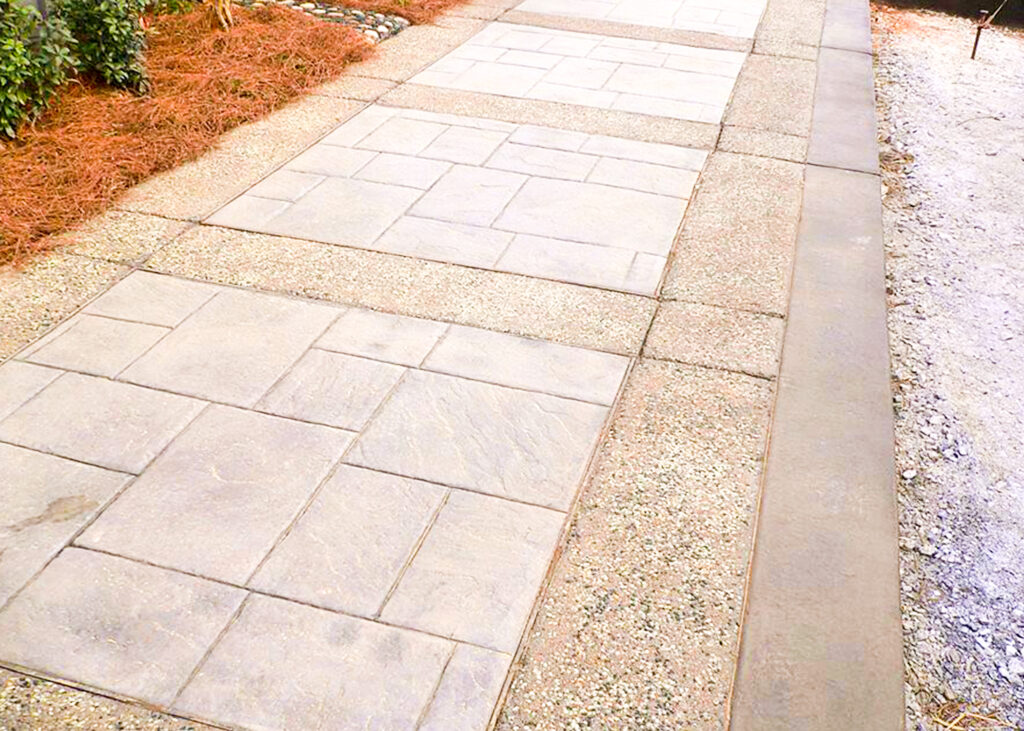
The surface is typically colored, with patterns designed to mimic segmental paving, though saw-cut joints may be visible.
Challenging for homeowners to install. Requires specialized equipment to stamp stone or paver patterns into the surface. A surface sealer is often applied.
Cracking may occasionally develop. Patched repairs can be difficult to match with the original color. Color fading may also occur over time.
Potential for deterioration due to de-icing salts.
The uneven surface of certain patterns and textures can make snow plowing difficult.
Gray or light brown, with coloring applied either throughout or only on the surface.
Challenging for homeowners to install and requires 5 to 7 days to harden before use. Surface quality may vary depending on weather conditions and installation methods.
Cracking is likely to develop. Repairs and replaced sections may leave visible patches. Oil stains can be difficult to remove.
Prone to cracks caused by freeze-thaw cycles, settlement, and salt deterioration.
The smooth initial surface allows for easy snow removal, but light-colored surfaces may slow snow melting.
Ordinary Concrete
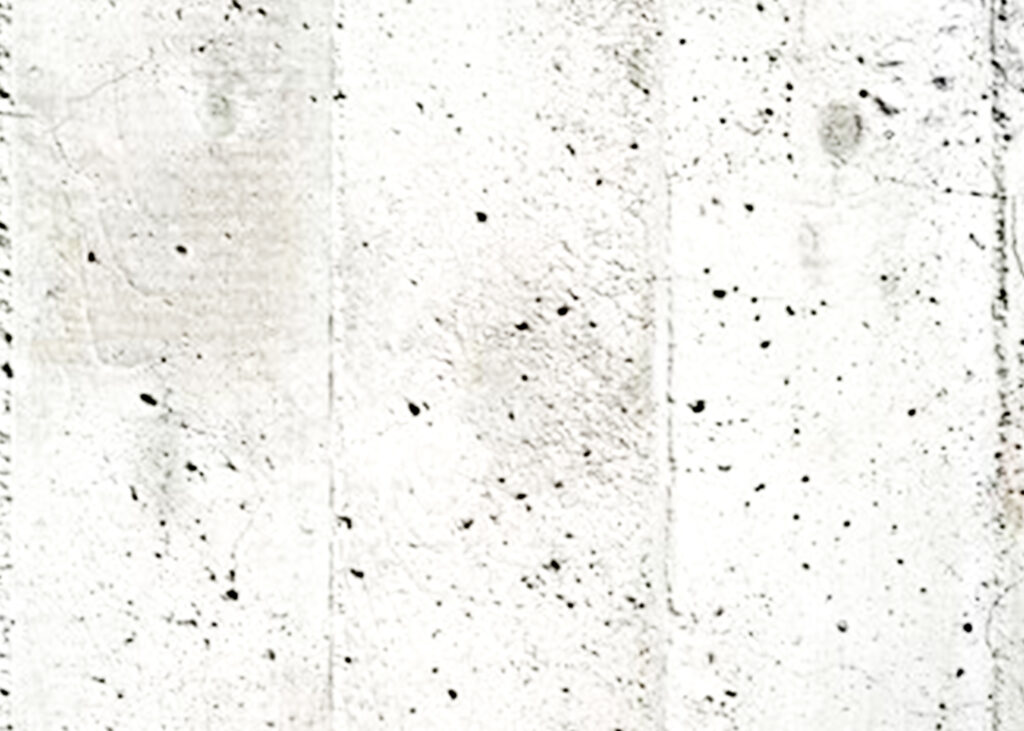
Crushed Stone / Gravel
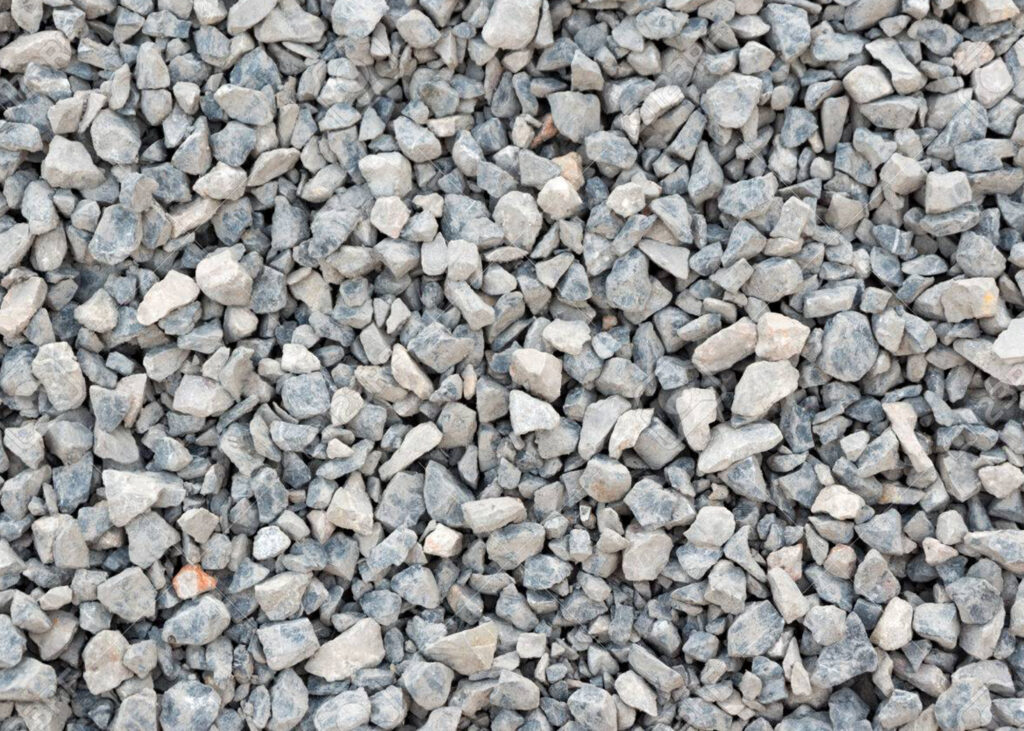
Generally offers a rustic appearance, with its look varying based on the color and shape of the stones.
Simply dumped and spread over soil; no base required.
Scattered stones require regular replacement and leveling. Tire ruts are likely to form over time.
Stones are resistant to freeze-thaw cycles and salt damage.
Stones and surfaces may become uneven during plowing.
Limited color options. Achieving clean, precise edges can be challenging. Stamped asphalt may have a painted and artificial appearance.
Quick installation over a compacted aggregate base. Requires professional installation.
Surface deteriorates over time due to wear and weather. A black seal coat is required every 2–3 years. Repairs for ruts or potholes may leave visible patches. Susceptible to erosion from oil drippings.
Prone to cracks caused by freeze-thaw cycles, settlement, and salt deterioration.
The smooth surface allows for easy snow removal, while the dark color accelerates snow melting. |
Asphalt
